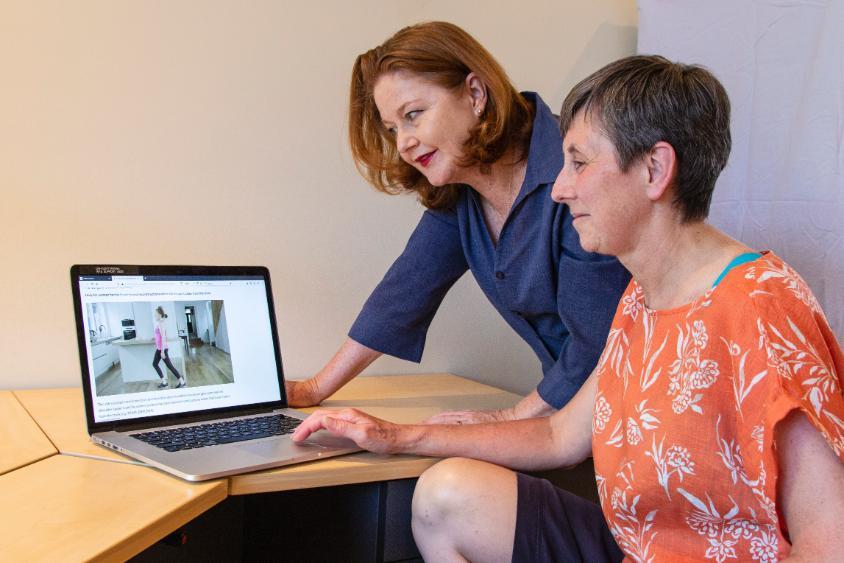March 9, 2020
New online resource to help women recover faster after breast reconstruction
UOW researcher brings together experts and patients to provide vital information after breast cancer surgery
A new online resource developed by a University of Wollongong (UOW) researcher and Breast Cancer Network Australia (BCNA) brings together for the first time breast cancer organisations, clinical experts and patients to help women self-manage their physical recovery after breast reconstructive surgery.
The Physical Preparation & Recovery After Breast Reconstruction (PPR) resource is available on the BCNA website and has been designed for women having all types of breast reconstructive surgery. It includes videos, a podcast episode and a webinar, which were developed to ensure women from across Australia, particularly in regional and rural areas, are able to access this vital information prior to their surgery.
Associate Professor Deirdre McGhee, from Breast Research Australia at UOW, said the need for the resource became clear when her research found a high percentage of women across Australia (approximately 50 per cent) were suffering from significant physical problems six months after their surgery.
Breast reconstruction typically takes place after a woman with breast cancer has a mastectomy, either immediately following the mastectomy or after a delayed period. The reconstructed breast is created by an implant or from tissue transferred from some other part of the woman’s body.
“Breast reconstruction is major surgery and many women are not aware that exercise before and afterwards can have a big impact on their recovery,” Professor McGhee said.
“We wanted to create a resource that has everything women need to know, in one place, based on research evidence and approved by clinical experts in breast cancer treatment. It’s something that hasn’t been done before, anywhere in the world, and is a huge step in helping women to physically prepare for and recover from their surgery.”
Jodi Steel was diagnosed with breast cancer four years ago. She underwent a tissue-based breast reconstruction and said the PPR resource would be an invaluable part of women’s recovery.
“With all the positive messaging around breast cancer survival, I didn’t expect the level of physical impairment I experienced following my mastectomy, and worked physically hard to recover,” Ms Steel said.
“I prepared for my reconstruction and recovered afterwards using exercises like those in the PPR resource and recovered better and faster than after my mastectomy.”
Women need to be able to restore their physical function after breast cancer treatments so they can continue to contribute to the world and meet their responsibilities, Professor McGhee said.
“On top of that, exercise is recommended to cancer patients to help them recover and decrease their risk of the cancer returning. But limited physical function after surgery can prevent women from being physically active.
“This resource gives women the tools to take active steps to prepare for and recover from breast reconstruction surgery – to recover on their own terms, as much as possible. It can help them to return to their regular activities as quickly and as well as possible, with some sense of control over their own recovery.”
The videos include physiotherapy-led exercises to help women prepare pre- and post-surgery; advice from breast care nurses about preparing the home for the post-surgery phase; and demonstrations of comfortable sleeping positions, getting out of bed, and wound care.
Associate Professor McGhee said her research revealed that women wanted more information on how to manage the physical side-effects of their surgery so they were able to be physically active and resume their normal pre-surgery activities at home, work, and within sport.
“Women are commonly overwhelmed around the time of their surgery and find it difficult to take in all of the information they are being given from surgeons, nurses and physiotherapists,” she said.
“The resource provides another opportunity for women to receive this important information, at a time when they feel they can take it in, in the comfort of their own home. The podcast and videos make it easy for women to just watch or listen.”
PPR has been a collaborative effort between Breast Cancer Network Australia, Breast Research Australia and the University of Wollongong. It brings together the expertise and experience of clinical experts (plastic surgeons, breast surgeons, breast care nurses, physiotherapists, lymphoedema specialists), cancer researchers and patient advocates.
